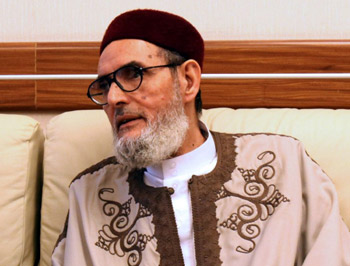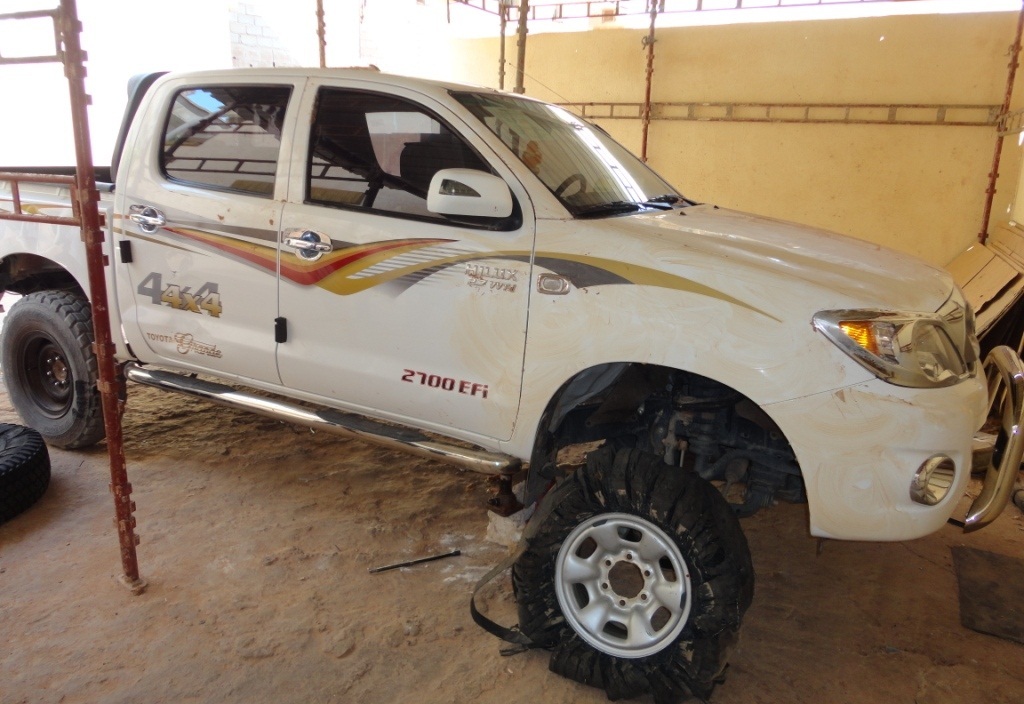By George Grant.

Tripoli, 15 August:
Grand Mufti Sheikh Sadik Al-Ghariani has issued a fatwa condemning the spate of bombings and assassinations that . . .[restrict]have afflicted Libya in recent weeks, including what appears to be a coordinated elimination of Qaddafi-era senior army officers in Benghazi.
In a statement issued through the Libyan Fatwa Office yesterday, Tuesday, Ghariani condemned what he described as “heinous crimes”, saying their was no justification for such attacks “regardless of motive”.
Ghariani singled out the Benghazi assassinations, emphasising the impermissibility of vigilante attacks “even if the person was in any way involved with the former regime.
“…It is not permissible in our religion for an individual or party to kill a person in cold blood”, the cleric continued. “Retribution should only be carried out through the judicial system after submission of a law suit and consideration of all evidence”.
There have been 14 successful assassinations of former regime officers in Benghazi so far this year, as well as a significant number of failed attempts.
Only yesterday a grenade exploded outside the home of Colonel Abdullah Alhaafa, commander of the Hurreya (Freedom) military base in Benghazi.
Last Friday, assailants gunned down Brigadier-General Mohammed Al-Fitouri as he left midday prayers in Benghazi. Al-Fitouri, who had previously served under the old regime, was in charge of weapons-storage in the city.
Two weeks earlier, on 28 July, Colonel Suleiman Buzraidah, a former intelligence officer under Qaddafi, was killed by a single shot fired from a white Chevrolet whilst going to Isha prayers.
That attack came just one day before an attempt on the life of General Khalifa Hafter, the commander of Libyan ground forces, although he survived.
Although Ghariani is a person of some influence in Libya, it remains to be seen whether his fatwa will be effective in stemming the bloodshed in practice.
In spite of making significant progress in the past nine months, both civil infrastructure and the formal security apparatus remain weak and under-resourced in Benghazi, making the prevention of such incidents and subsequent apprehension of those responsible extremely difficult.
On a recent visit to military facilities in the city, the Libya Herald came across one regular army brigade still being housed in the burned-out ruins of an old Gaddafi-era barracks, with not a computer or chair to be found in the entire complex.
Meanwhile on today the president of the Benghazi Local Council, Shahat Awami, tendered his resignation after just two-and-a-half months in office, after revealing that the council had only 2 million dinars left in its account, meaning that many salaries were not being paid.
None of those responsible for the recent killings have been apprehended as yet, and their identity remains a mystery, although speculation amongst local people is rife.
“Some people are blaming the Islamists, others are blaming the revolutionaries, and still others are blaming Gaddafi people trying to give Benghazi a bad name”, said Hana Al-Gallal, a member of the Benghazi National Council for General Freedom and Human Rights.
“Whoever is responsible, we don’t need a fatwa to condemn the killing of any Libyan in this brutal manner.
“We fought this revolution for the rule of law; not for assassinations and arbitrary killings, and I can tell you that 90 per cent of people in Benghazi feel the same way”.
In his fatwa, Ghariani stressed that those involved in tracking down and murdering such people were not advancing the cause of justice, but were rather engaging in murder.
The mufti cited a number of Quranic verses, as well as sayings of the Prophet Mohammed, as evidence for his ruling.
[/restrict]










